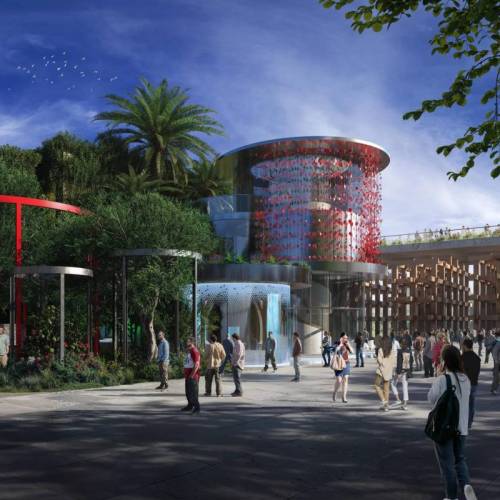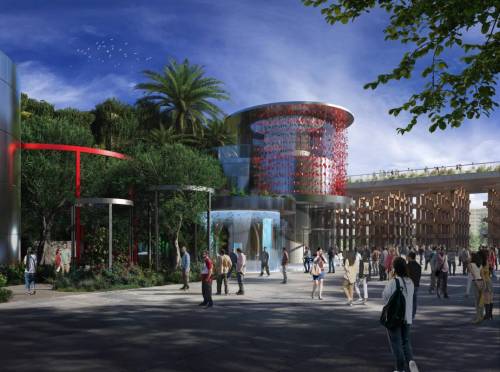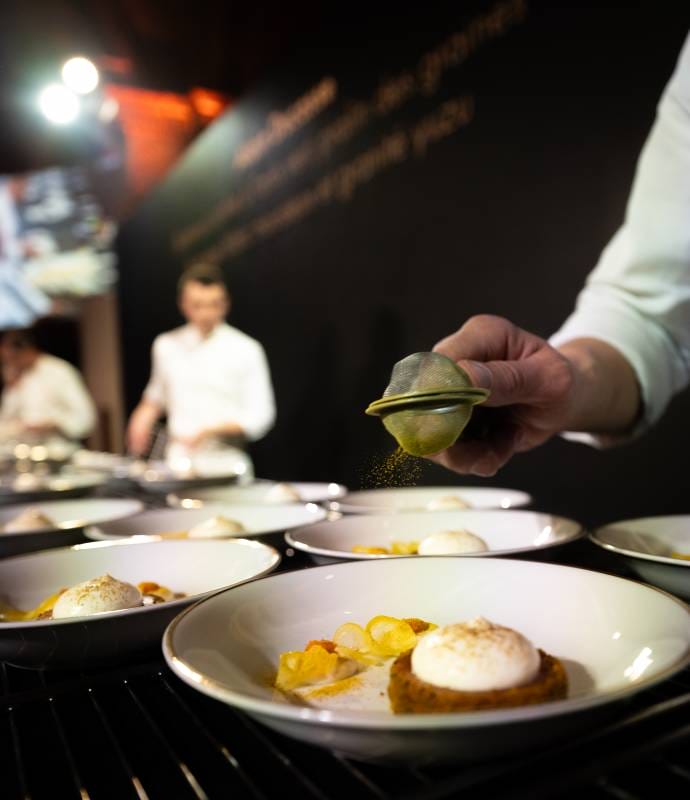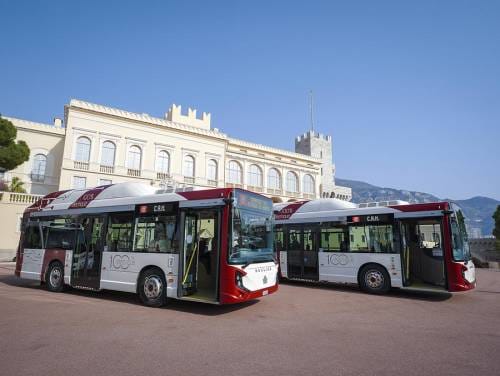“Do what you love, love what you do, make the difference!”, this slogan by Kate Powers, co-founder and president of Monacology carries the essence of this week-long 100% eco-sustainable village that animated the Quai Antoine 1er at the Port Hercule in Monaco from the 11th to the 15th June 2018.
Since its creation (in 2004), this annual event has been offering the Riviera’s youth the opportunity to test and increase their environmental awareness thanks to a series of workshops, exhibitions and educational role-playing promoted by high standard key players and best schools in the Principality.

Monacology is under the auspices of Prince Albert II of Monaco Foundation, the Gouvernement Princier (Department of Education), the Mairie de Monaco, the International Atomic Energy Agency (IAEA), the Yacht Club de Monaco and the Grimaldi Forum, just to name some. The implementation of the Energy Transition Monaco White Paper and the 17 UN Sustainable Development Goals (SDG) was at the basis of all activities.

«I am totally happy with this edition which included even more exhibitors, non-profit associations and private stakeholders (around 30, in total) who could enjoy a fantastic dry weather, the whole week», highlighted Kate Powers by adding: «each year we have more children and it is fantastic to bring sustainability and help them being more aware».
A whole generation, in fact, has already grown up with Monacology and the older children are playing as tutor for the young ones. Something very inspiring and touching! But what does it mean taking part to this unique eco-village? HelloMonaco collected exclusive feedbacks from some relevant participants to this edition.

Sustainability passes through actions. This is the target of The Animal Fund – TAF that is playing a crucial role in protecting worldwide dolphins and whales from any human impactful risk and pollution, promoting fun education action plan and eco-awareness campaigns in Côte d’Azur. «It is very important to make new generations be aware of the importance of protecting the marine environment and this year I am proud of seeing children interested in preventing plastic pollution and preserving our ecosystem which they are increasingly conscious of», pointed out Berit Legrand, founder and president of TAF. A great achievement that is still not enough but makes us think positive for the future.

«Everyday Media and Social Media are reporting about the negative impacts human activities are causing to the ocean biodiversity so that we need to try our very best. This means we can really do something instead of using those unsustainable plastic products containing chemicals, mainly used as packaging (e.g.: plastic silverware, bottles, straws, etc.); this is our goal at Monacology expressed by the motto: be plastic free is the key!», stressed Ms Legrand.

A lesson not only for youngsters but also for adults, like Gabriella, from Argentina, among the greatest supporter of TAF who was able to stop, think and change her lifestyle towards a recycling-oriented one.
Acting in a sustainable way starts while testing with a multidisciplinary approach. The International Hydrographic Organization (IHO), a UN intergovernmental technical organization with observer-status focused on both guaranteeing a safe navigation and protecting the marine environment, two elements closely linked. «We hosted hundreds of children who received an environmentally-friendly badge after taking part to a specific workshop based on world geographical maps to identify the marine protected areas and the impacts of plastic-waste gyres (marine garbage patches) on the biodiversity, following a junior interactive ‘journey’ through hydrography», underlined Yves Guillam, deputy secretary to IHO directors. A great chance to hold in children’s hand the vital importance of the oceans from different points of view.

Feeling sustainable means learning more about wild fauna as Prince Albert II of Monaco Foundation, together with the Grimaldi Forum emphasized during a multiple-choice educational lab aimed at discovering different species of animals and their role in modern times.

Being sustainable is also a matter of nutrition. This is the aim of the workshop promoted by Linck®, major producer of Vegetarian and Vegan Products in Europe and at international level, founded in 1998.

«We invited all the participants to reflect on the difference between a vegetarian and a vegan, showing them the impact on the environment of intensive farming, in terms of deforestation, water consumptions and air pollution, and we found out that most of them had already their knowledge on this topic», concluded Catherine Van der Molen, responsible for the international commercial development at Linck®.









